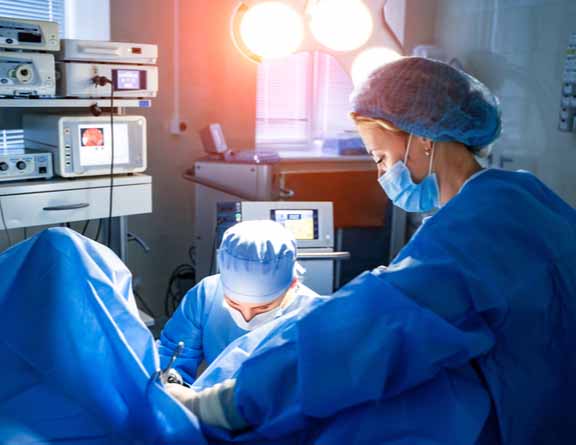
Coimbatore
Licensed Clinics
Certified Female Gynecologists
Confidential Consultation
No-cost EMI
Want to abort your pregnancy? Looking for a healthcare provider who can help? Consult with our expert female gynecologists in Pune for a safe and confidential medical or surgical abortion. Our clinics are licensed and our doctors are certified to provide you a safe abortion without any complications. Abortion, in the simplest term, is the medical procedure to end an unwanted pregnancy mid-gestation. It is a legally sanctioned option in India for both married and unmarried adult women (18+ years), and you do not need your parent's/ partner's permission for it. However, it is permissible only under 4 conditions:
Aborting a pregnancy is a very personal decision. This is why our doctors advise counseling first. However, if the woman still decides to terminate her pregnancy, our gynecologists are medically trained and legally licensed to perform the abortion procedure.


There are primarily two types of abortion, medical and surgical. Let us understand how both these types of abortion work:
: A medical abortion is done using medicines and pills. One can take medicine max upto 4 weeks. A medical termination of pregnancy can be done using the following medications or pills:
: A surgical aboprtion is the procedure that ends a pregnancy by removing the pregnancy tissue (the fetus and placenta) from the uterus. There are two types of surgical abortions, namely Dilation and Evacuation and Dilation and Curettage.
: This procedure is usually performed in the first [1st] trimester. During this procedure the surgeon will first dilate your cervix to allow the tissue to be removed from your uterus, either by using a loop-shaped curette instrument or a suction curettage that acts like a small vacuum.
Both of these methods (medicinal and surgical) are equally safe and effective. However, it is important that you make an informed decision before going for the treatment. You can get in touch with Pristyn Care and consult our Gynecologists in Coimbatore to learn more about the types of abortion and understand the right line of treatment for you.
Certified Female Gynecologists. Quick & Rapid Recovery.
Our team consists of the top gynecologists in India with extensive experience in performing medical and surgical abortions and ensuring the patient faces minimal discomfort in the process.
We ensure 100% confidentiality of the patients seeking an abortion. The patient’s identity and all other associated details are kept safe and aren’t divulged to anyone, so the patients do not have to worry about their privacy.
To help patients manage the expense of their abortion, we provide No Cost EMI offers. By availing of these offers, patients can pay for their abortion in convenient and affordable monthly installments.
We put together a comprehensive, all-inclusive treatment experience for patients. Patients receive complete medical assistance from our care coordinators, starting from the initial consultation to follow-up care.
Yes, abortion when done by a registered and experienced OBGYN, is one of the safest procedures. It involves no incisions or cuts, marks no major side effects, and recovery is quick. However, it must be done only by a licensed OBGYN at an MTP registered clinic.
At 5 weeks, you have the option for both medical and surgical termination of pregnancy. However, abortion by D&C would be better to avoid excessive bleeding, pain, and cramps.
Surgical abortions are usually a very swift procedure. Depending on the procedure and technique you opt for, it may take anywhere between 30- 40 minutes.
No. Since STP marks no incisions or cuts, it leaves no scars.
No, unless specified otherwise, voluntary abortions are not covered under insurance.
A surgical abortion is typically a D&E or D&C procedure. That is- dilation and evacuation, or dilation and curettage. Either of the procedure may be employed based on the individual need, medical health, or personal choice. Both are quick and minimal pain procedures and can be performed in under 30 minutes.
The OBGYN surgeon first dilates the cervix through medication/ injection. Once the cervix opens up, the OBGYN aborts the pregnancy by gently vacuuming or curetting the fetus and uterine lining out through the woman’s vaginal passage. Since the procedure ensures complete expulsion right through the procedure, it marks comparatively lesser post-surgery bleeding, and recovery is quicker and easier.
| Sr.No. | Doctor Name | Ratings | Experience | Address | Book Appointment |
|---|---|---|---|---|---|
| 1 | Dr. Vaishnavi Devi D | 4.6 | 17 + Years | 103, Sathy Rd, near ICICI Bank, Coimbatore | Book Appointment |
| 2 | Dr. Aarthy Sumaldha S P | 4.6 | 14 + Years | -- | Book Appointment |
.svg)
.svg)
.svg)